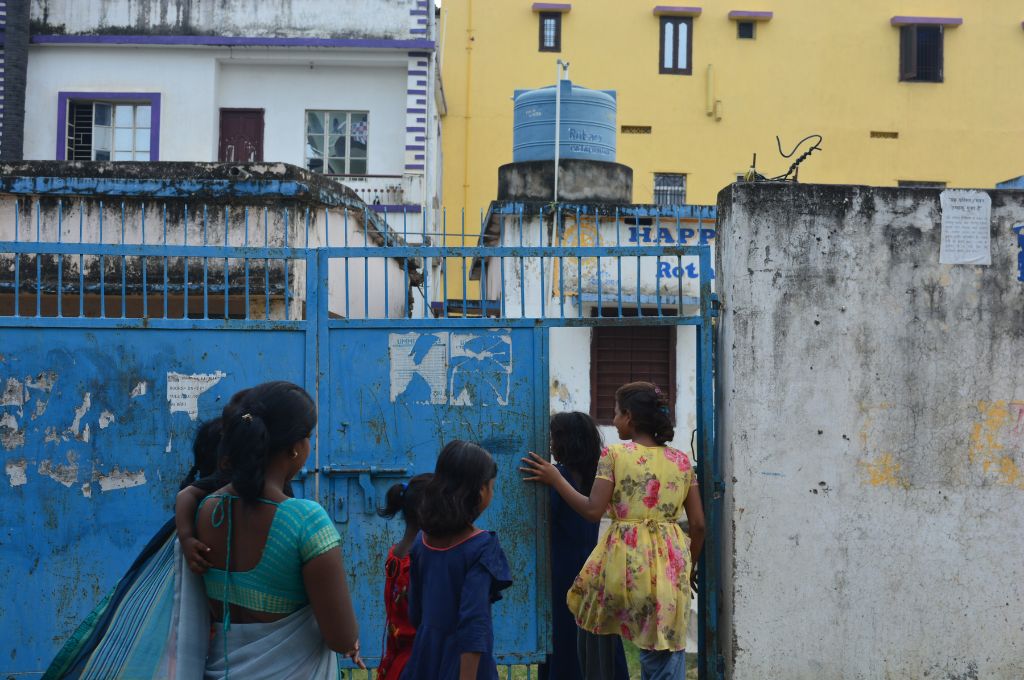
The Musahar community in Patna district, Bihar, is labelled as a Mahadalit community—a term used by the state to describe the poorest social groups among Dalits. Across Musahari tolas (communities), there are instances of children being discriminated against and forced to drop out of school as a result.
For the past eight months, as part of our work with Aajeevika Bureau, we’ve been trying to ensure that these children remain in school. We know of at least three Musahari tolas—located in Rukanpura (Danapur block), Harnichak, and Beur (Phulwari block)—where most of the children have dropped out. The few who haven’t, are enrolled in private schools, but the parents find it extremely difficult to afford the high fees.
The school administration in the area makes it difficult for these children to maintain regular attendance. We have witnessed incidents of teachers humiliating the students in front of the entire classroom. They would state that the child is not well groomed or not wearing a proper uniform, even though the school itself is supposed to provide money—received from the state government—for a new uniform to the children’s parents, which they fail to do. Older students from the community are also made to clean the floors and utensils.
In the Mahuabagh tola, one of the primary schools tried to issue a directive that children would be expelled if their parents visited the school in a drunken state, even though this would be against what the Right to Education Act stipulates. Although the directive does not mention the Musahars, it indirectly targets them as the community is forced to trade in alcohol because of a lack of access to any other sustainable form of livelihood.
Faced with such discrimination and caste bias, the children themselves do not wish to attend school. Ramesh,* says “I don’t feel like going to school because I’m forced to clean up after the midday meal.” The children have also cited instances of parents of students from other communities complaining about their kids eating with those from the Musahari tolas. As a result, children from the community prefer to stay at home and help around the house, or take their animals for grazing. They do attend classes if organised by nonprofits working in the area, but without external intervention, their willingness to attend schools is reducing.
The newest obstacle is a drive launched by Bihar state’s Department of Education to improve attendance in schools. As a part of this drive, parents/guardians are sent a notice seeking an explanation for their child’s absence if they miss school for three days simultaneously. If they do not resume attending classes within 15 days of receiving the notice, they are to be expelled from the school. The state government has rooted the rationale for this decision in more efficient utilisation of state funds, which they say are wasted if they continue to be channelled towards students who are not attending schools.
The schools may start citing this drive as a reason for not enroling Musahar children, saying that they will not be able to meet the attendance requirements, thus making their admission a futile exercise.
*Name changed to maintain confidentiality.
Ananye Krishna is the co-founder and managing trustee of DEVISE Charitable Trust. Pronita Tarafdar is a managing trustee at DEVISE and a development practitioner who is currently working as Work in Dignity Fellow with Work Fair and Free Foundation, incubated by Aajeevika Bureau.
Shailendra Kumar and Anita Kumari contributed to this article.
An earlier version of this article used the term ‘Musahari’ incorrectly. This was rectified on April 16, 2025.
—
Know more: Learn why women from the Banchhada community in Madhya Pradesh cannot access education.
Do more: Connect with the authors at devise@nalsar.ac.in to learn more about and support their work.



